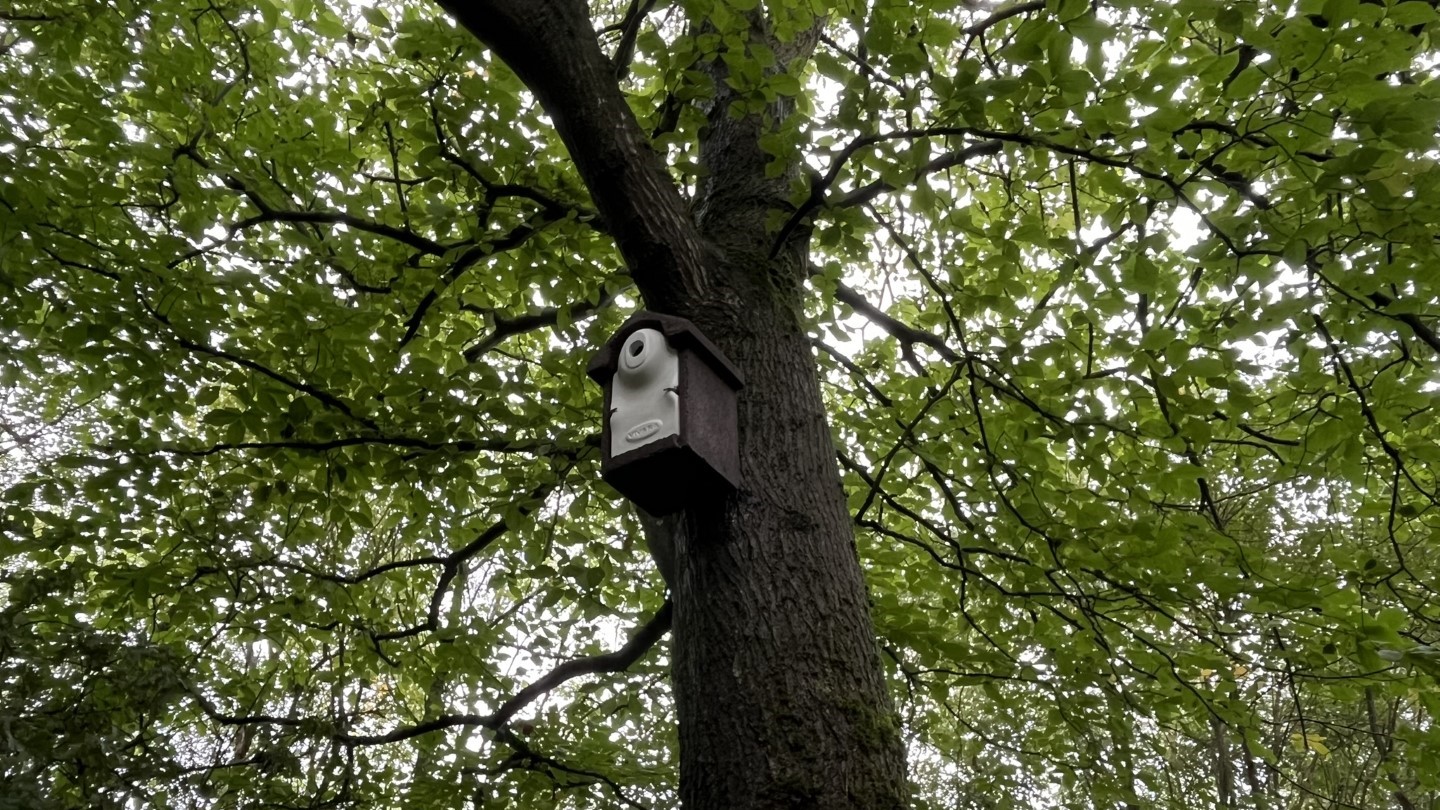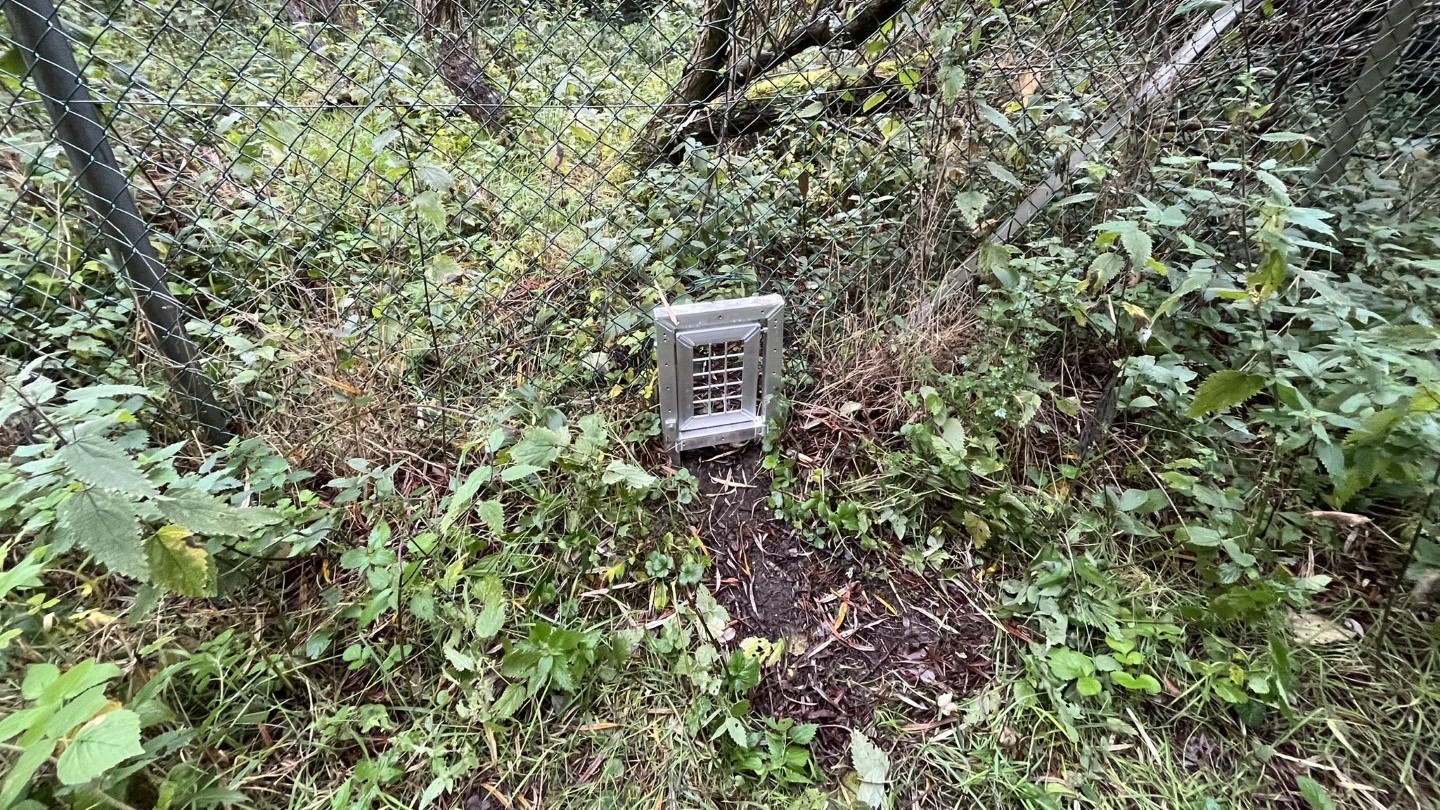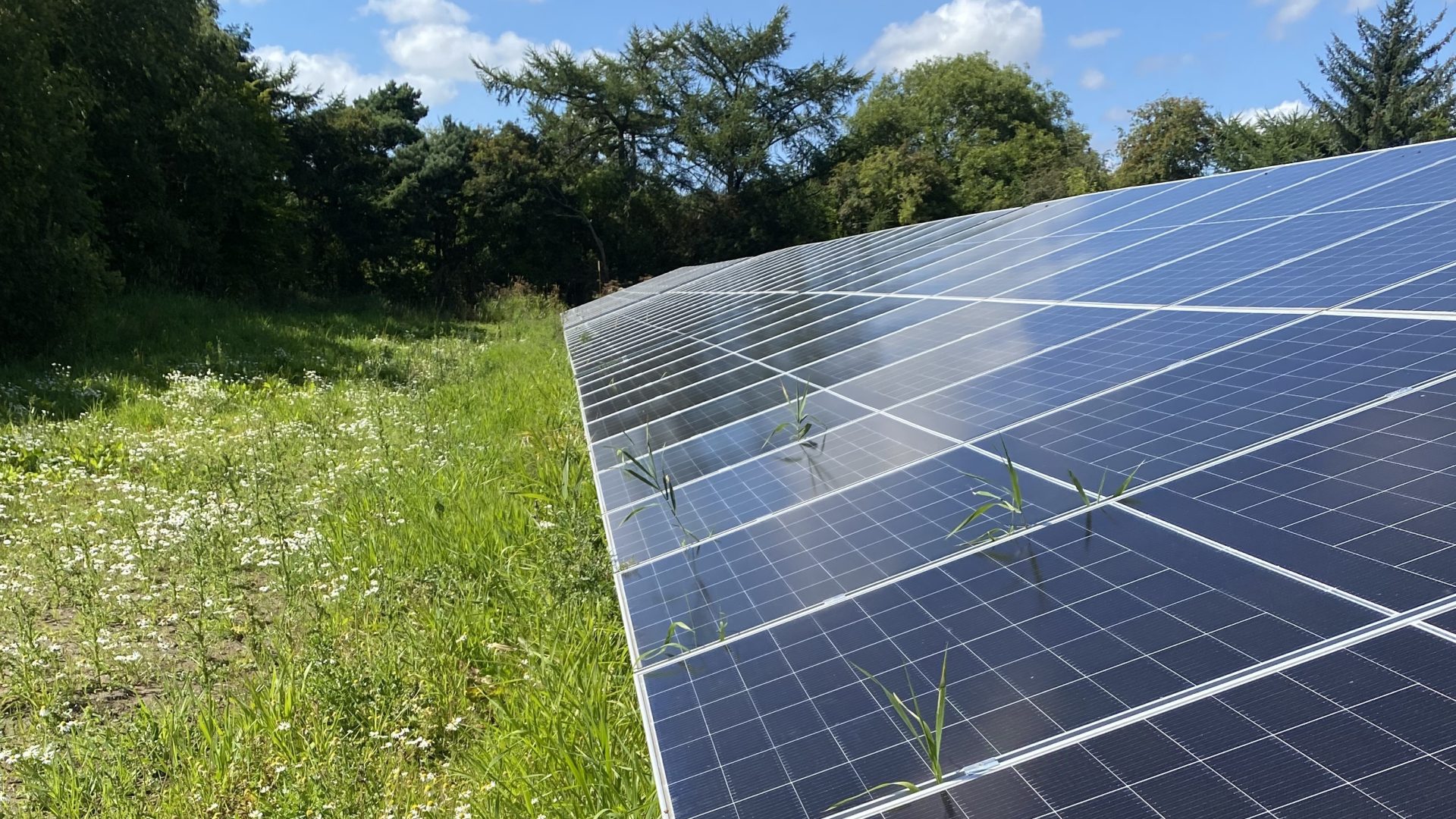Scottish Water has completed work on a £1.4m solar scheme at a site near Edinburgh which is set to save 221 tonnes of carbon a year.
The project, at Newbridge Waste Water Treatment Works on the outskirts of the city, consists of 2,016 ground mounted solar panels with the capacity to generate over 1GWh of energy on an annual basis.
Around 50 per cent of that energy will be used on site, which is run as part of a Private Finance Initiative (PFI) arrangement by operator Veolia, meeting a quarter of the energy needs of the treatment works and supporting Scottish Water’s drive to reach net zero emissions by 2040. The other half will be exported to the national grid.

As part of the project, significant biodiversity measures were implemented to enhance the local environment. These included the planting of ‘Wet Meadow’ and ‘Woodland Meadow’ seed mixes to support pollinators and native wildlife.
Additionally, six bird boxes and two bat boxes were installed on trees, and a badger access gate was created to allow safe passage through the site, underlining Scottish Water’s commitment to tackle the dramatic decline in biodiversity across the country.
The scheme has been led by Scottish Water Horizons, the public utility’s commercial subsidiary, and delivered by renewable energy specialists Absolute Solar & Wind.
Scottish Water Horizons Project Manager Alan Mearns said:
“We’re delighted that work is now complete on this latest project in our solar power programme and that people in Newbridge can know that the processes involved in treating their waste water are now significantly greener.
“As the impact of the climate crisis becomes more apparent in the increasing frequency of extreme weather events across the UK, the need for immediate action to reduce emissions is very clear. Solar energy is a key strand of our journey towards net zero and we remain focused on reaching our ambitious targets.”

Alan Mearns added: “In addition to the carbon savings, we’ve taken meaningful steps to enhance the local biodiversity through the planting of wildflower meadows and installing bird, bat, and badger habitats.
“We are witnessing a stark decline in nature around the world, including Scotland and we are clear that we need to maximise the opportunities to improve and protect biodiversity across our land wherever possible, building these measures into projects as a matter of course. Restoring biodiversity will be key part of tackling the climate crisis.”
Tracy Byford, Veolia Contract and Stakeholder Manager, said:
“The waste water industry is one of the largest consumers of energy and we are pleased to be working with Scottish Water to reduce our carbon footprint at Newbridge waste water treatment works. We are a net exporter of green energy at Seafield treatment works, and this is another step toward more sustainable practices throughout the water treatment industry and wider ecological transformation.”
The Newbridge site joins a long list of PV schemes already up and running at many Scottish Water assets across Scotland which are now either self-sufficient or partly sufficient in generating their own power requirements.



